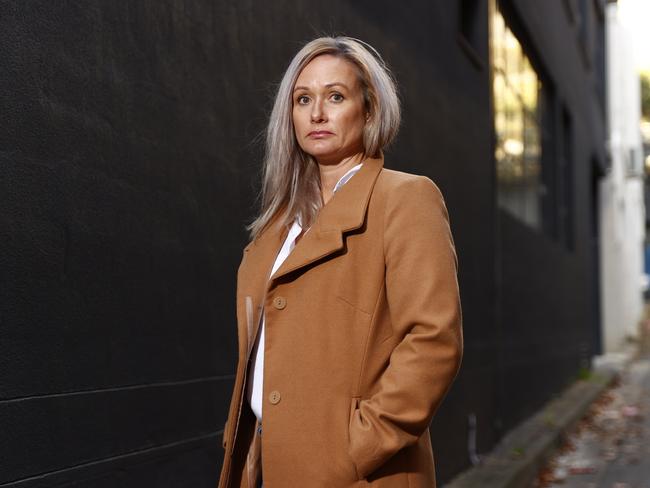AFP working with autism experts after rise in youth extremism and terrorism
An expert has revealed how more kids are being radicalised with one particular group at risk. See how you can protect your family.
True Crime
Don't miss out on the headlines from True Crime. Followed categories will be added to My News.
EXCLUSIVE: Federal police are working with autism experts to try and stem the number of young people with the disorder being radicalised online by violent extremists.
The AFP would not provide figures on the number of young people – neurodivergent or not – being radicalised, but confirmed it was working with a specialist not-for-profit service provider.
“The AFP have engaged Aspect (Autism Spectrum Australia) to better understand and support neurodivergent youth who may be at an increased risk of being targeted and radicalised online,” a spokeswoman said.
Police have seen an increase in under 16s “on a path to radicalisation” or “demonstrating concerning behaviours” since July 2021, with some planning attacks at schools on students and teachers or looking to make explosives or use weapons.

Leading counter terrorism expert Peta Lowe, from Phronesis Consulting and Training, said extremists were moving into mainstream social media platforms such as YouTube and Twitter, as well as gaming spaces, and using softer messaging.
She said Islamic State in particular was getting better at reaching young people.
“Extremist groups are using these platforms to target large numbers of people,” Ms Lowe said. “They cast a wide net and then spend their time pulling the net in and seeing how many fish they have.”

She said neurodivergent children tend to spend more time online because they prefer interacting with others from behind a screen, rather than dealing with face-to-face social cues.
She said they are also more “susceptible” to radicalisation and once hooked are more likely to become “fixated”.
“One young person I worked with was obsessed with planes,” Ms Lowe said.
“That led him to watch videos of the planes crashing into the Twin Towers and then into radicalisation.”
She said diversion and redirection were the best way to get children back on the right path, but it can be more difficult to achieve with neurodiverse children.

Ms Lowe warned parents to look out for a change of behaviour, secrecy and defensiveness.
She said while it was mostly males drawing the attention of law enforcement, there are females being radicalised as well, but acting in more supportive roles.
Researchers from Victoria University said Australia was seeing a rise in the number of referrals to extremist violence prevention programs that involved individuals with neurodiversity, such as autism.
The AFP said parents should be aware of what their children are doing in the online world, and help steer them toward mainstream sources of factual information, rather than forum and chat groups on the fringe of the internet.
They should also supervise their online lives and check privacy settings, with terror groups creating “gamified” content to lure young people in.
Risk factors include “social dislocation, peer influence, mental health challenges, neurodiversity factors, active online engagement with extremists, and triggering or traumatic events”.
In a submission to a parliamentary inquiry into right wing extremism, the AFP said, “Online environments are becoming increasingly saturated with violent extremist content, creating echo chambers lacking alternative content and reinforcing extremist narratives.
“The AFP is aware of extremists making ‘gamified’ content to make extremist concepts more relatable to young people.”
Last month a 16-year-old caucasian boy was shot dead by police after stabbing a man in a Bunnings carpark in Perth.
He had self-radicalised to Islam after watching extremist content online and was understood to have suffered significant mental health issues. It is not know whether he was also neurodivergent.





